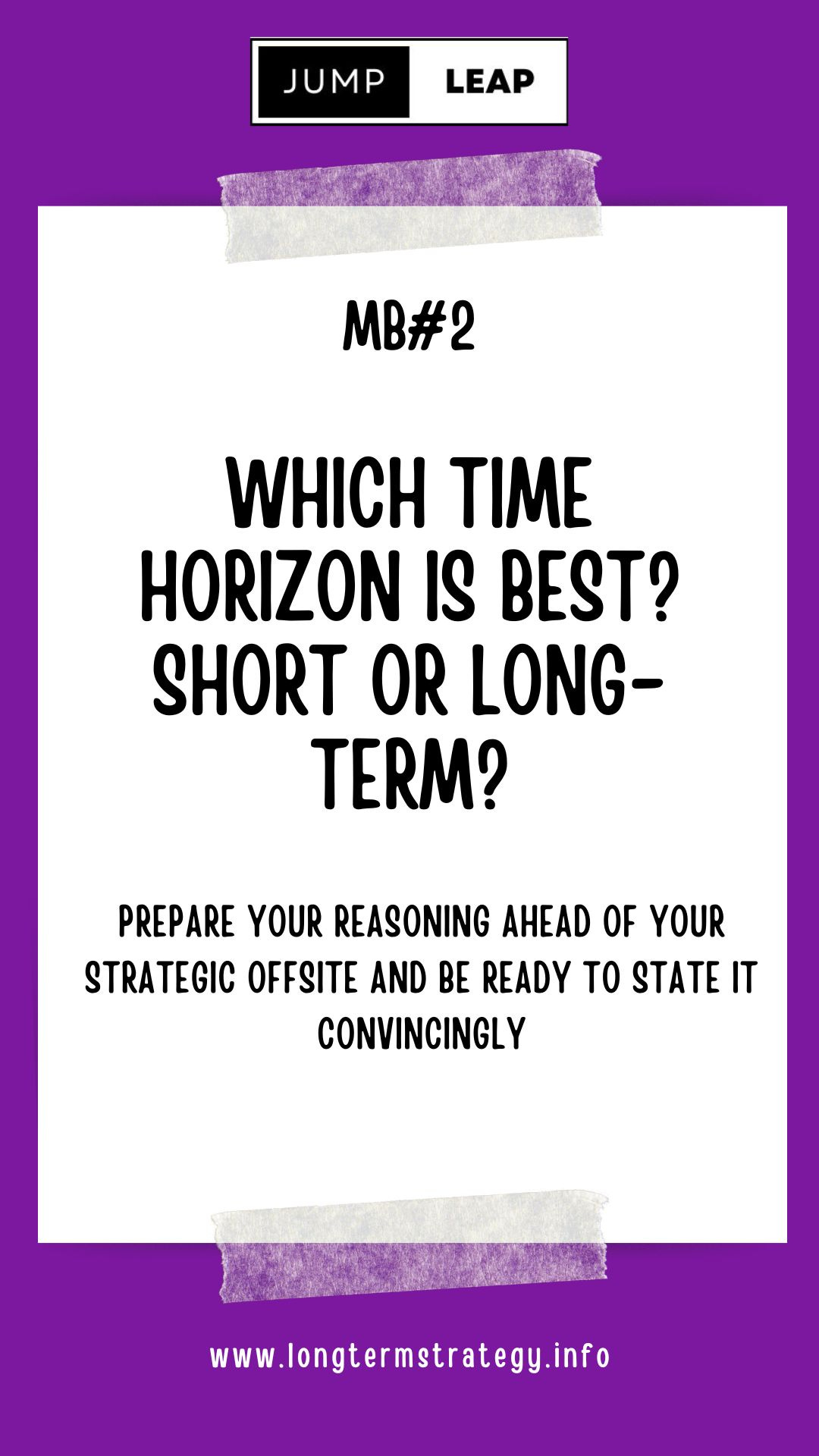MB #2 Which Time Horizon is Best? Short or Long-Term?
Prepare your reasoning ahead of your strategic offsite and be ready to state it convincingly.
You may be in a quandary. Should your team put together a long-term strategy, even though recent times have been difficult and chaotic? You must make a decision because it affects the way you design your upcoming strategic planning retreat.
But it’s not easy. You are hearing conflicting advice. If you aren't convinced, you may even cancel the event altogether.
In this article, I'll help you consider all the factors required that match the needs of your business.
A Confusing Decision
Chances are, everyone on your team agrees that long-term planning is important in some form, and at some point. Unless your company is about to be sold (or closed) in the next year or two, there are few who would argue that a purely reflexive, seat-of-the-pants approach is best.
But it's a different matter to engage a team of executives in making interwoven short/long-term plans, during an actual meeting lasting several hours. At this moment, you are likely to run into opposition to the idea, or even the odd individual who enjoys playing devil's advocate in the event itself.
Why is this important? I have witnessed a few heated debates in past retreats, with participants split about the value of long-term planning. To prepare yourself for a similar moment of open disagreement, in this mini-book you'll learn how to respond with your own, clear point of view.
A Radical Redefinition
First, we need to clear up a common misconception. Usually, the decision to create a short-term versus long-term strategy is presented as a choice between apparent opposites.
The two are thought to be exclusive: apples versus oranges.
However, the truth is that a long-term plan always includes a short-term plan, if done correctly. It's a bit like a marathon race which includes both 10k and 5k runs. While the distances to be run are different, they are not opposites.
“a long-term plan always includes a short-term plan…they are not opposites”
For example, when my company helps companies do their strategic planning, we always do both. They are interwoven. The long-term plan ranges from 15 to 30 years in length, on average. It's developed “alongside” a 3 to 5-year short-term plan. (I say “alongside” because the long-term strategy precedes its counterpart, but they are obviously inter-dependent.)
So why do people get hung up?
In most executives' minds, short-term planning is mandatory, but long-term planning is optional. Especially when times are hectic, companies tend to postpone the latter. But they rarely put off short-term planning unless they are in complete emergency mode, such as an armed conflict.
So, this is really not a decision between one extreme or the other. It's really a choice to engage in long-term planning, or not. And that's what the rest of this article will focus on.
Is Long-Term Planning Necessary?
No need to ask. When you query executives whether they have a long-term view of the future, they'll always reply "Yes". It's not as if the question is brand new to them at all.
However, if you dig a little deeper, you'll find a problem. Sometimes, even if they have a written long-term plan, team members will say different things. In other words, they are all making daily decisions using their personal map of the future.
Keep reading with a 7-day free trial
Subscribe to JumpLeap Long-Term Strategic Planning to keep reading this post and get 7 days of free access to the full post archives.





